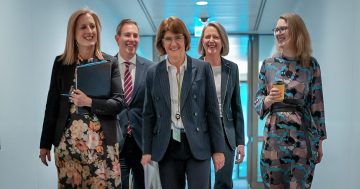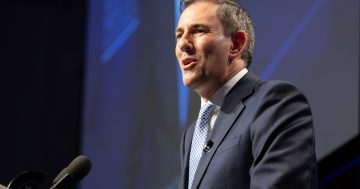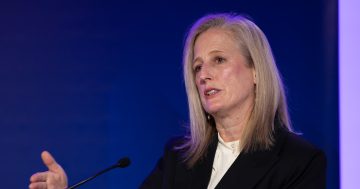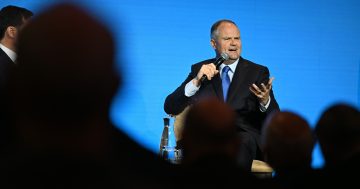
Productivity Commission chair Danielle Wood has delivered the Federal Government with a to-do list to be discussed at this week’s roundtable. Photo: Grattan Institute
Anthony Albanese and Jim Chalmers are reining in expectations over this week’s productivity roundtable, with the Prime Minister touting his election mandate while the Treasurer is being “realistic” about outcomes.
The three-day gathering, now officially called the Economic Reform Roundtable, kicks off Tuesday (19 August) with invited political, business, community and union leaders in discussion around the Cabinet table about Australia’s future.
During a Sky News interview on Monday, Mr Albanese played down expectations of ambitious reforms to emerge from the talkfest, saying his government had already been elected on a specific agenda.
“We were elected with a strong mandate quite clearly, but we’re certainly not complacent,” he said.
“There’s a range of things that can be done immediately, there are some things that we will feed into budget processes through our normal way that we operate, and there are other things that are longer term.
“We have a clear policy agenda, but we’ve also said that’s not the limit of our ambition.”
The PM has previously ruled out the roundtable agreeing on such things as a four-day working week or changes to negative gearing of investment properties and capital gains tax.
But he insists he is on the same page as his Treasurer trying to reach consensus from the roundtable’s participants.
“We meet all the time and we’re engaged in reform,” Mr Albanese said of his working relationship with Dr Chalmers.
For his part, the Treasurer says she is being both optimistic and realistic about the gathering and what the various stakeholders will discuss.
“We have been working really hard in the lead-up to this roundtable, and I am confident that all of the effort that has gone into this has already been worth it,” he said.
“I am realistic, but I am optimistic that we can make progress together. I don’t believe we will solve every challenge in our economy in three days.
“This is all about three days to inform the next three budgets and beyond and I am really looking forward to it.”
The Treasurer added that proposals agreed on would be implemented according to “the nature and magnitude of the changes” put forward.
“It may be that there are some nearer-term opportunities that we can implement relatively quickly,” Dr Chalmers said.
“That remains to be seen.”
As the forum’s attendees began arriving in Canberra on Monday, a number took the opportunity to outline their expectations and what they hoped would be up for discussion.
Productivity Commission chair Danielle Wood addressed the National Press Club and outlined the ideas put forward in the Commission’s five papers prepared for the roundtable’s agenda.
These proposals covered areas such as slashing the corporate tax rate to 20 per cent for businesses with a turnover under $1 billion; a five per cent cashflow tax on all businesses; giving all teachers and students access to the highest quality education technology; increasing work-related training participation; not over-regulating AI; and a clean energy strike team to prioritise climate friendly national projects.
Calling it the Commission’s “to-do list to help shift the dial” on growth, Ms Wood said now was the right time to act on bold ambitions.
“If nothing changes, we see more of the same,” she said.
“It’s about unlocking gains from our resources to enable all Australians, and particularly young Australians, to have better lives than they do now … I’m optimistic that there is a package here that can make a difference to Australia’s prosperity.
“Together they show what it means to take a growth mindset to policy.”
Australian Council of Social Service chief executive Cassandra Goldie said the roundtable must look at how to fix what she described as Australia’s broken employment services system.
She said the system had become too compliance-driven and far too punitive and damaging to people needing the services.
Business Council of Australia chief executive Bran Black wants to see a reduction in red tape over development projects, with drastic changes to environmental protection laws that he says are getting in the way of productivity.
ACT independent Senator David Pocock says Australians shouldn’t be expecting too much from the roundtable, but he thinks the risks of ignoring the impacts of climate change should be a priority discussion for the participants.
Speaking to the ABC, Senator Pocock said while there had been a lot of hype about the gathering, it’s obvious the PM and the Treasurer are not approaching it with the same enthusiasm.
“I’m not confident that we’ll see big announcements out of it,” he said.
“It seems like we’re stuck between, you know, a Treasurer who really does see the opportunity for broad economic reform – for structural reform – and a Prime Minister who probably isn’t that keen to do anything too radically and seems to be ruling things out, which I think is really disappointing.”
Original Article published by Chris Johnson on Region Canberra.










